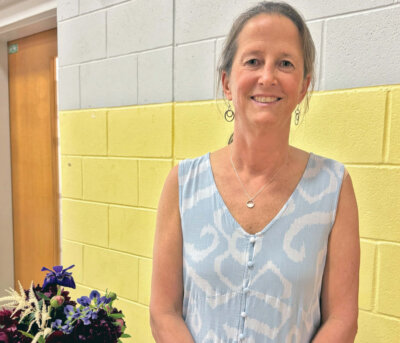Consciously adding joy important to campus experience
“Because I’m happy/Clap along if you know what happiness is to you,” sings Pharrell Williams in his aptly titled, hit song “Happy.”
However, Fortune reported recent election data indicating that many Generation Z students and graduates (born 1997-2012), or about 20 percent of the U.S. population, are feeling disillusioned and left behind about their futures. Making a conscious effort to add joy to everyday choices and activities can create a noticeable impact on personal well-being.
The CNN podcast “Chasing Life with Dr. Sanjay Gupta” explores the five key elements of happiness: physical health, social life, relationships, self-expression and embracing change. This science of happiness began with a 1938 Harvard study of adult development and continues to this day.
First, don’t neglect the basics of physical health like exercise and eating well. With hectic class schedules and commitments, many students spend more time responding to others and carving less time for themselves. Neuroscience research suggests that lonely people have higher levels of stress hormones and weaker immune systems.
As the weather gets colder, consider going to sleep a half-hour earlier to wake up a half-hour earlier. Changing your routine to walk around campus or go to a café can become a positive distraction and productive habit.

In thinking ahead for second semester, consider adding an elective like ballet barre, signing up for indoor soccer or joining bouncy horse races. An active body can help to clear the mind for the day ahead. In the process, meeting new people can make campus more fun.
Second, adding social engagement is part of social fitness. Generation Z is known as “digital natives” because they have grown up with technology. Social media is integral to their personal development, schoolwork and professional lives (Zoomers). Meeting new people, beyond the screens of existing friends, can be tough at first, like the first day of school. However, happiness can be improved when making strides with social connections and career networking.
This October, the Washington Post highlighted the popularity of business etiquette classes. Many young adults began their careers with remote work and are now going back to the office. It is important to be prepared for social interactions such as how to dress, make small talk and avoid office drama. Feeling confident in how to approach unfamiliar settings with a positive attitude can contribute to successful outcomes.
Third, strengthening existing relationships can impact happiness. Expressing gratitude for friendship is a two-way street in sharing appreciation with each other. Taking time to connect with friends can also expand social groups.
Friendships can also help with expanding career opportunities. Expand social networks by brainstorming a list of people who have experience in fields of interest who can pass along recommendations.
Consider reaching out to professional contacts. This is a chance to discuss a personal or career fork in the road and ask for suggestions to move forward. The phrase “six degrees of separation” means there is a common connection among a loose network of people. Friends of friends can provide insight toward a goal. Making progress can give an incredible feeling of happiness from a supportive community.
Fourth, self-expression is an outlet that provides personal immersion and happiness. Each person’s core values can be catalysts to reconnect with their authentic self. Pursuing favorite activities can broaden social circles to form new friendships with common interests.
For example, enrolling in the Shelburne Craft School for pottery or woodworking classes is a great excuse for creative pursuits. Feeling engaged in an activity allows you to put your best foot forward and feel more hopeful.
Finally, the fifth pursuit of happiness is accepting and embracing change. Part of being a student and young adult is to be curious. Pushing out of your comfort zone to be open to new situations is a growth opportunity. It takes practice to get comfortable with being uncomfortable.
Confidence can be gained in adjusting to the unknown. Being willing to adapt to various social settings becomes easier after tackling previously uncomfortable situations. People are drawn to individuals who do not shy away from new experiences.
Feeling happy is not a guarantee. It takes conscious effort to add a sprinkle of joy to busy routines, but soon you will be hooked on the habit. Enjoying a happy Thanksgiving begins with oneself.
(Margo Bartsch founded College Essay Coach, a full-service college admission business, and has been an adjunct professor in business at Champlain College and at Middlebury College.)
Related Stories
Popular Stories
If you enjoy The Charlotte News, please consider making a donation. Your gift will help us produce more stories like this. The majority of our budget comes from charitable contributions. Your gift helps sustain The Charlotte News, keeping it a free service for everyone in town. Thank you.
Andrew Zehner, Board Chair








